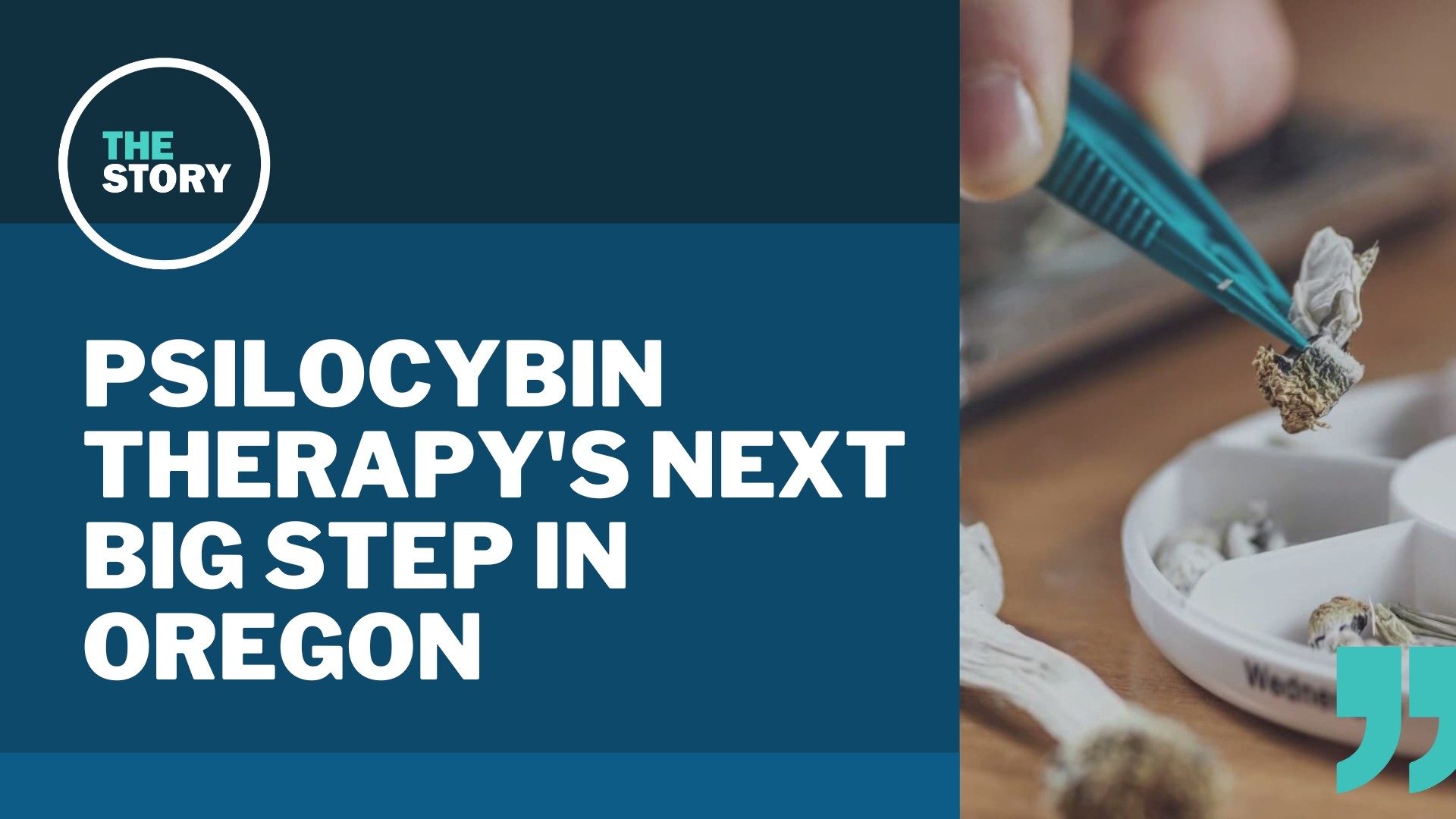PORTLAND, Ore. — The new year marks another major milestone for Oregon's trail blazing push to begin offering psilocybin therapy, the result of a measure passed by voters in 2020. The state is now accepting applications from people and organizations that want to be a part of making the program happen.
Psilocybin is the hallucinogenic chemical found in certain strains of mushroom, which is where the nickname "magic mushrooms" originated.
For the time being, psilocybin mushrooms cannot be bought legally anywhere in the U.S. The Drug Enforcement Administration still classifies them as a Schedule I substance, which means that the federal government considers them to have a high potential for abuse.
But 55% of Oregon voters approved Measure 109, meaning that the Beaver State is the first in the nation to have a regulatory framework for legal psilocybin services — which, as a recent episode in Portland illustrated, does not mean that the state legalized the retail sale of psilocybin.
And even this fairly strict regulatory framework is not universal in Oregon. Two months ago, voters in 25 of Oregon's 36 counties voted to ban these legal psilocybin services. Several cities followed suit.
According to the Oregon Health Authority, emerging research suggests that psilocybin may help people in dealing with depression, anxiety, trauma and addiction. They add that studies have found magic mushrooms can increase a sense of spiritual well-being.
With the regulatory framework now in place, the start of 2023 means that Oregon is beginning to accept applications for psilocybin licenses. People who are interested in getting licensed to work with psilocybin can find out how to apply on the state's website for psilocybin services.
First, here's what that doesn't mean: There's no form of licensure where someone can apply to grow magic mushrooms at home and use them recreationally. That's explicitly not what this process is for.
Instead, the licenses are for manufacturers, labs, service centers and facilitators — all aspects of a clinical approach to offering psilocybin therapeutically.
There are very strict rules in place that determine where and when someone will be able to legally buy and consume psilocybin. Those rules were finalized by the Oregon Health Authority last week.
Here's a look at the whole process from start to finish:
- Psilocybin mushrooms are grown and processed by a licensed manufacturer, then tracked as they leave the facility.
- The mushrooms are then tested in a licensed facility to double check potency and dosage size. Those results will also be entered into the same tracking system.
- Then the mushrooms are sold or transferred to a licensed service center, like a clinic. They're "transferred" if the same company owned both the lab and the service center.
- People age 21 and older can then seek out a supervised session at one of these service centers, where they'll take a pre-measured dose of psilocybin.
You may have noticed that the word "licensed" came up just about every step of the way. This is the process that started this week. Every entity involved in the process, with the exception of the client, will need to get licensed through the state of Oregon before they can legally get into the business.
The clients do not need a prescription or a medical referral, so the age limit is the biggest barrier on that side of the equation.
Here's the process for actually partaking in psilocybin therapy:
- First, the prospective client meets with a trained and licensed facilitator at a service center.
- After a preparatory session with the facilitator, the administration session begins — this is the part where the client actually takes the psilocybin dose.
- The client then talks with the facilitator as they begin to feel the effects. Under Oregon's framework, the facilitator will accompany the client through the whole experience, lasting from one to six hours depending on the dosage.
- After the effects of the psilocybin wear off, the client can either leave or stay and take part in an optional "integration session," where they can talk about further support or other resources that could help.
Since applications for licensure are just getting started, it should go without saying that there aren't any service centers yet open, and it will probably be a while before the first one does get off the ground. But the Oregon Psilocybin Services office does expect some service centers to open for clients later this year, once there's a fully licensed supply chain in place.
So what will these services cost? We don't have a clear idea right now — it will be up to the market. Oregon's framework simply says that licensees will determine the cost of their services once they're open for business.
Since this is the first such regulatory framework for psilocybin anywhere in the U.S., there aren't any nearby markets to compare or compete with. This means that licensees will be able to charge whatever they like — or at least whatever the clients will bear.

